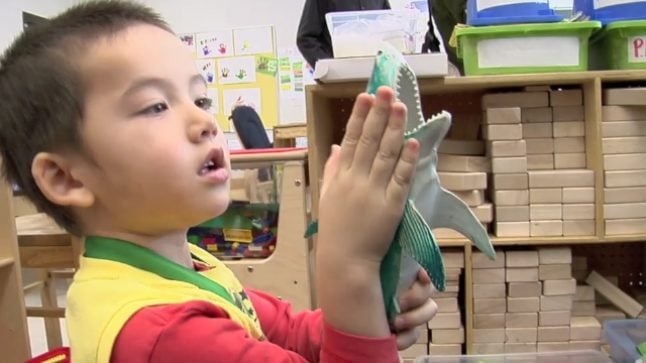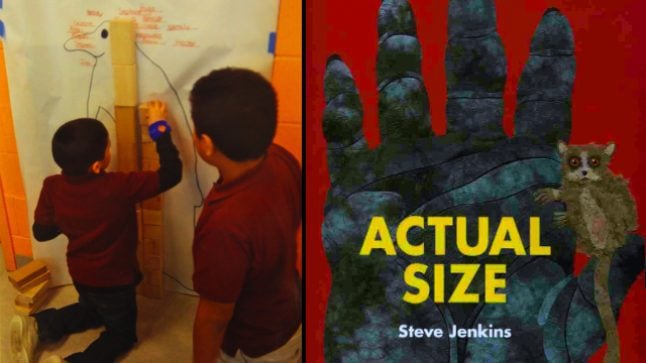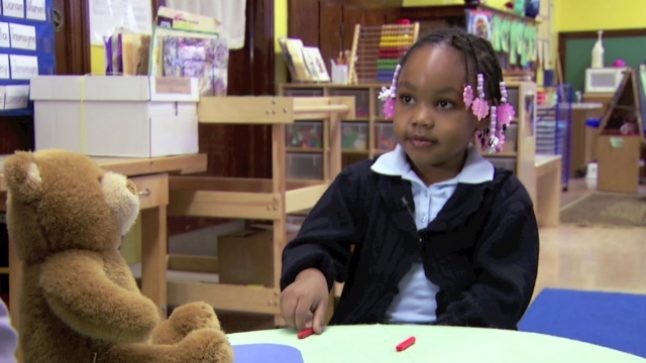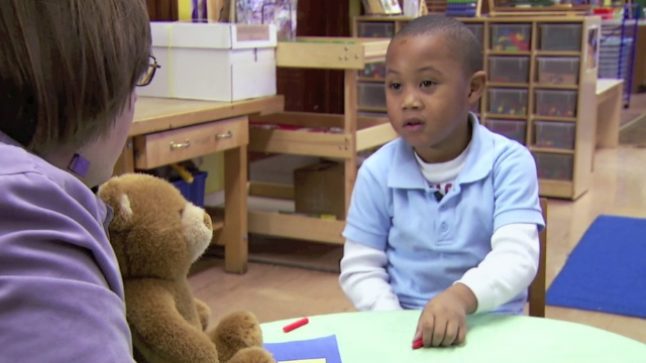Measurement is any process that produces a quantitative description of an attribute, such as length, circumference, weight, temperature, volume, or number. Measurement is an essentially mathematical procedure that we apply in many different contexts. In our daily life, we often wish to know how many beats per measure, how many more minutes until preschool is over, how hot it is today, or whether I am taller than my friend. In all these circumstances, we use some kind of comparison process to measure or to answer the question “how much?” or “how many?” Attributes like length and capacity are more readily apparent and meaningful to young children than less visible ideas like temperature and time.
Copyright: Erikson Institute’s Early Math Collaborative. Reprinted from Big Ideas of Early Mathematics: What Teachers of Young Children Need to Know (2014), Pearson Education.



